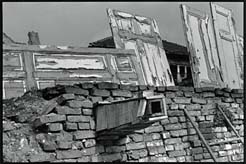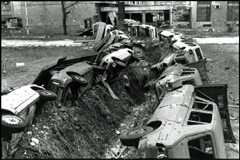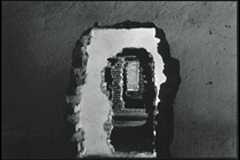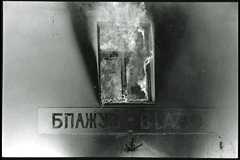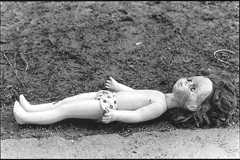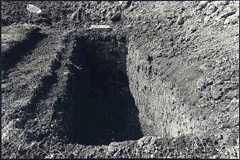
Bosnia, Feb. 19
As I am walking through this destroyed landscape, through the remains of a war now gone,
I am overwhelmed by the silence, the absence of explosions. I can hear the birds singing.
The ending of war is almost more depressing than war itself because once you don't have to
run for your life, the evidence of waste is fully there to contemplate as slowly as you want,
inch by inch, bullet hole by bullet hole.
